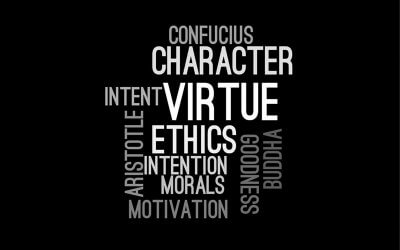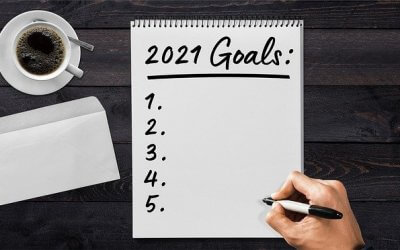Over the last ten weeks, a theme I have recommended for CEOs and business leaders is showing empathy for their employees and key customers. That means more than a quick how are you doing, but truly listening to their issues as they deal with the stress of COVID, working from home, financial pressures, etc. While many may dismiss this, it is my opinion that those CEOs who do show genuine empathy will build relationships and a culture that defines their business for the next decade.
Well, “Houston, we have another problem.” The last week has seen massive protests across the country arising from the killing of George Floyd. Listening to interviews and reading much on the subject, what has struck me the most, is the fear and concern that African Americans have for themselves and their kids in the day to day environment from interactions with law enforcement. I cannot begin to understand this, but hearing successful executives like Peter Henry, Charley Moore, Ralph Clark, Lee Pelton, and Fredrick Baba talk about their experiences and what they have to tell their children is shocking. Adding to this seeing the videos of Christian Cooper being accused by Amy Cooper of threatening her life and Steve Locke’s post from 2015 just brought home how different our experiences are. As Peter Henry says, “a heart-stopping moment is . . . encountering a random law enforcement officer in an uncontrolled environment.”
The stress your African American employees are experiencing you cannot relate to. COVID is far more damaging to their community; they are taking the brunt of unemployment and wealth destruction while daily being scared that they may have a negative encounter with law enforcement. They are worried about their families and themselves, and especially at this time, their stress is off the charts. Now is the time to show empathy and listen.
I have heard that the new job interview question is “What are you working on?” The purpose is to look for clues that show how their resume translates into the needs of the current world and how involved that person is in today’s most critical missions. Well, CEOs must realize that the “A players” are going to ask them the same question. For all the complaints and grumbling about millennials, they are the largest segment of the workforce, so you need them, and they are saying, we’re not going to tolerate it anymore.
Look at Drew Brees, the New Orleans Saints quarterback Drew put out a statement saying that taking a knee would never be acceptable to him as it disrespected the flag. Within hours there was a response from his teammates decaying Brees’ stance, especially a strong rebuke from Malcolm Jenkins. It was apparent that Drew had lost the support of his team. A quarterback, no matter how good, needs his team to win. So after trying to figure out how to straddle the fence, Brees gave up and apologized for his earlier comments.
So decide on what you are going to do to show empathy and support. However, whatever you do, do not put out an announcement as the NFL did initially, which said nothing! If you are going to say nothing of consequence, say nothing. As Cynthia “Cynt” Marshall, CEO of the Mavericks and the first black female CEO in the NBA, said, “As a leader, it’s’s important that I’m clear about what I stand for and what I am against. I abhor racism, disparate treatment, inequities, and inequality.” Adding, “more importantly, [business leaders need] to listen to their employees.” If you stand for nothing it is best not to make it obvious.
I think Mark Cuban put it best when he said, “Dear White People: We are the ones that need to change.” So as Emerson College’s Pelton asked, “The most important question is: What are you going to do?” I would ask you to rise to the occasion. You will be measured by it for a long time.
Copyright (c) 2020. Marc A. Borrelli
Recent Posts
The “Flaw of Averages” Causes Havoc for Businesses
Discover how understanding the limitations of averages and embracing probabilistic thinking can improve decision-making and risk management in business.
What is Your Strategy, In a Sentence?
If you are banking on the vaccine returning us all to “normal” quite quickly, in the famous words of Dr. Akande, “Hope is not a strategy.” Your organization should be preparing a well-defined strategy for 2021 and beyond. Once you have this strategy, the ultimate question: can you clearly articulate it in one sentence? Distilling your strategy into a single sentence is a powerful tool, both for your legacy and your team effectiveness. Not sure where to start? I offer a plug-in formula to set up your strategy sentence.
Character Matters
“It’s easier to hold to your principles 100% of the time than it is to hold to them 98% of the time.” — Clayton Christiansen. I have often written about the importance of a company’s Core Values. That’s because no matter what words you may have chosen as values, your organization’s Core Values are on display in how leadership and employees actually behave. As I’ve said before, how you have acted in the last twelve months will define your career for the next decade. Your character, and your company’s character, matters.
New Year’s Resolutions, Once More Unto the Breach
The holidays have been even quieter than normal, which has given me plenty of time to reflect on my New Year’s resolutions. Looking at 2021, I decided to use a completely new approach to lay out my goals. The result of my new approach? A highly-detailed, accountable, actually achievable plan for the next year (I think). Wondering what this process looks like?
To Vaccinate or Not to Vaccinate, that is the Question
What do your employees, peers, and leadership team think of the COVID-19 vaccine? Will you require the vaccine, or will you let employees make individual decisions? As a leader, you need to steer the discussion about vaccines in your organization with your Core Values in mind. No matter what strategy your organization takes, the most important factor is going to be how you communicate your decision.
3 Ways You Could be Undermining Your Core Values
Can you answer “Why does your organization exist? What are your core values?” Great. Now, would your latest entry-level employee give a similar answer? How about someone who has been at your company for a year? Your core values give your organization a guiding mission. Many organizations pay this idea lip service, but their true commitment to their core values was tested this year. As we close out 2020, there’s no better time to examine how your organization is approaching your core values.
Are You Prepared for 2021 With Enough Cash?
Companies don’t go bankrupt because they lose money; rather, they run out of cash. Where are we, heading into 2021? First, you can expect your cash to get tighter as we weather the current economic slowdown. Then, with a vaccine on the horizon, you will need to be positioned for growth. If you don’t have the cash you need, have you looked at how you can generate the cash internally? More on how to improve your cash conversion cycle…
Tony Hsieh, a Corporate Culture Icon, RIP
In his work as Zappos CEO and elsewhere, Tony Hsieh believed, and proved, that culture is the most important thing in an organization. According to Hsieh, if you get the culture right, the rest will take of itself. How did Zappos do it? You can take a look at everything from the company’s interview questions, to “The Offer” to leave a position as a new hire. Hsieh believed that a company’s brand is just a reflection of the culture, and his legacy is felt across so many industries.
CEO, Try Thy Hiring System
How does your company hire? I’ve seen the good, the bad, and the surprisingly ugly hiring processes in my career. From the HR email mix-ups to the interviewer watching the World Series while I responded to his questions, I’ve learned that you can tell a lot about an organization simply by examining the hiring experience. Are you chasing away the kind of people you need at your company?
What is Leadership?
What is it, exactly, that great leaders do? There are plenty of overused adages about “leadership” in business. It’s worth examining the tropes around leadership, plus the traits of the leaders who actually leave a mark. Great leaders are forged through adversity, and they leave a legacy. What does that look like in your organization?











